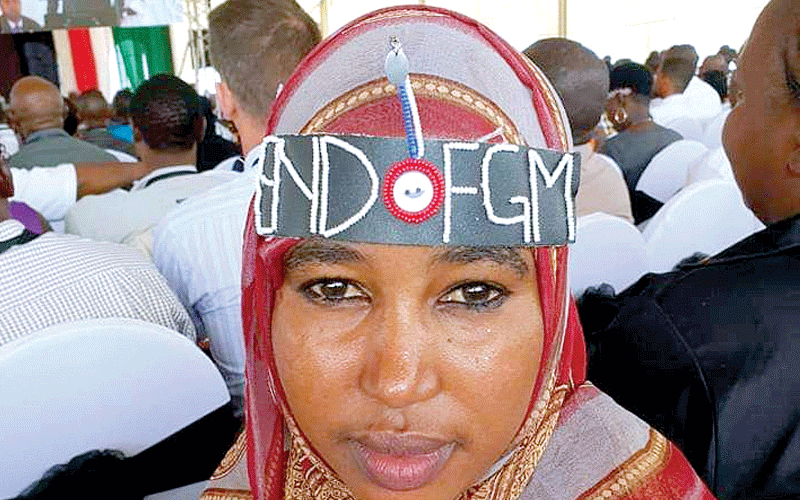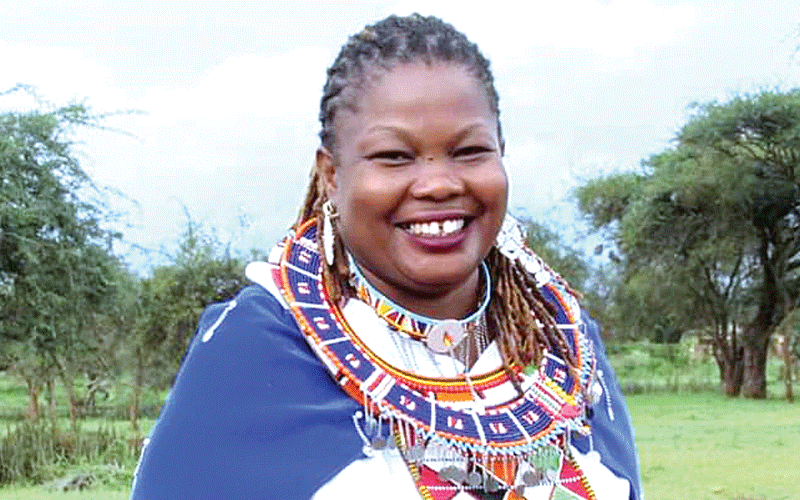It’s back to drawing board for activists in anti-FGM war
By Manuel Ntoyai, May 8, 2020Manuel Ntoyai @manuel_ntoyai
With the coronavirus pandemic taking the spotlight from almost everything, many sectors in economic and social spheres are greatly affected.
Among these is the fight against Female Genital Mutlation (FGM), a practice deeply entrenched in some communities.
Activists have been forced to adopt short-term methods to help curl the problem, declared illegal in the country in 2011 with President Uhuru Kenyatta already committing to end the menace before 2022.
“During these strange times, a lot of girls in our community are at risk of forcibly undergoing FGM and child marriages.
The perpetrators of such heinous crimes are taking advantages of quarantine and curfew measures to carry out these injustices to our girls,” says Fred Nchoko, an anti-FGM activist and policymaker.
He says closure of institutions such as schools, churches, hospital departments and others has helped to conceal the practice within communities since interactions and reporting have been really affected.
His sentiments are supported by Dominic Kimita who works with Network for Adolescents Youth of Africa and whose efforts in fighting the vice hugely depend on working on the ground as a coordinator and mobiliser.
“We are currently facing a number of issues due to increase in gender-based violence.
From FGM, forced marriages to teenage pregnancies. Last week we received a case from Simon Kesheko, the Mosiro area chief in Kajiado who had to rescue a girl from being cut,”he says.
Kimita adds that there is a gap in information and since most of these communities use traditional media, organisations are reworking their strategies to come up with solutions.
“ As a result of the restricted movement, it has been very difficult for victims or activists to move from one place to another to get information or even evacuate girls facing the risk of FGM.

“As an organisation we are working with other like-minded individuals and entities to provide solutions, including repackaging of content for the communities,” he says.
Although they have been working with traditional media, change in programming has affected outreach programmes. Normally organisations would have survivors appear on live shows, but restriction of movement around the country has affected this.
“In light of these issues, MaaFleva Entertainment comes as an intermediary role between the community or the survivors and the law enforcers to ensure that even during this confinement period, girls and women facing the risk of FGM have support and a channel to get saved.
“We are helping repackage content in our studio and disseminate this to traditional media, and also through our social media,” says Nchoko.
For Dayaa Women Group based in Tana River County, community outreaches that usually spearheaded dialogues with elders and other leaders seem to have hit a halt.
Sadia Hussein, coordinator of the community-based organisation, says efforts in creating awareness in her community have been disrupted as gatherings, conferences outreaches and other forms of public engagement which need mass gathering have been banned.
“Since the reporting of the first case of COVID-19, governments and other agencies have shifted focus on its fight, and other issues now are not given attention. This, therefore, made the perpetrators have an easier time to continue the practice of FGM,”she says.
The group has rechanneled its energy to use of media since everyone is glued to TV, radio and even to an extension their phones foe updates.
Mobilise support
“Through our local radio stations, we are getting good audiences and we are using this to not only talk about the pandemic, but also continue to raise awareness on matters FGM in our community,”she adds.

At the same time, with security and local administration on the lookouts, some organisations have taken this to their advantage to mobilise support for girls at risk of FGM.
Dorcus Parit, director at Hope Rescue Centre based in Kimana, Kajiado county says while perpetrators hide behind the corona blanket and try to take advantage of young women, her team has been keen to ensure community members are able to reach out for help.
This, in turn, is complemented by working with the local security and administration apparatus, which has been meeting regularly.
“ This is one of the issues I addressed at large at a meeting we held with the security personnel and local administration of Loitokitok sub county, led by the Deputy County Commissioner, OCPD and OCSs of the different locations within the sub county.
The security and local administration team assured of heightening security patrols to ensure such vices will be curbed with necessary force of the law,” she says.
“As we continue to follow the governments directives, we will stay vigilant to ensure that safety of our children is very much prioritised,” she adds.
